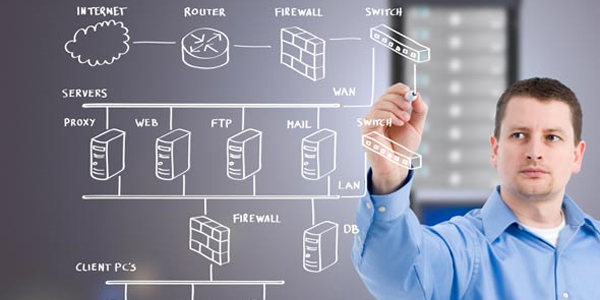I learn from my mistakes; so probably do you. Living in IT sometimes seems like an endless series of gotchas, gaffes, and snafus. But while technical mistakes are the bread-and-butter of the everyday IT profession, it’s often the “soft” mistakes that can really kick you in the rear end, even for senior IT administrators. My colleague Adam Bertram has some heed-worthy things to say on this subject that I felt were worth sharing especially with those of our readers who are in senior IT administrators within their company or organization. Adam is an independent consultant, technical writer, trainer and presenter who specializes in consulting and evangelizing all things IT automation mainly focused on Windows PowerShell. He is a Microsoft Windows PowerShell MVP, a 2015 powershell.org PowerShell hero, and has numerous Microsoft IT pro certifications. He is also a writer, trainer, and presenter and creates IT pro course content for Pluralsight. You can find Adam at his site Adam the Automator and follow him on Twitter @adbertram. Let’s listen to Adam now as we learn from his many years of experience in the IT profession and how even senior IT administrators don’t always get it right. He’ll also tell you about a new e-learning platform he’s built that might help you.
The biggest mistake: We stop learning

I’ve been in IT for over 20 years now. It’s hard to imagine it’s been that long. I feel like I’ve seen it all; emergency downed servers, worm/virus breakouts, budgets so tight they squeak, and organizations with way too few people for the workload. I’m a seasoned veteran, so I know how to handle a lot of situations. But I don’t know everything.
I and others in my position sometimes think we can be done learning. We reflect back on the days as a teenager when we thought we knew it all, but now, we really do know it all. Right?
The know-it-all syndrome
It’s easy to catch a case of the know-it-all syndrome when you’re surrounded by people who have less experience than you. Maybe you’ve been in a single organization your entire career, have risen through the ranks and by now, have no one more senior than yourself. You’ve made it! You’ve summited the mountain, and there’s nowhere else to go! Not really.
We live in a big world, and you’re merely a big fish in a small pond. As soon as that fish makes a beeline for the ocean, you’ll learn real quick there are thousands of hungry sharks out to eat you.
There are lots of ways we can overcome the know-it-all syndrome.
- Accepting that oceans exist.
- Being humble.
- Being open to negative feedback.
- Understanding someone else will always know more.
Once we can accept each of these criteria, we can cure ourselves of this syndrome. I’m not saying it’s easy and, it’s going to hurt your ego but you will grow in the process. No one likes being told they’re wrong or there’s a better way to do something, especially when it comes from a junior engineer. But junior isn’t stupid, and even senior IT administrators can’t possibly know everything.
Human beings are only capable of holding and recalling so much knowledge in their brains at one time. If you’re like me, I can’t remember what I had for breakfast this morning let alone how I did that server migration 10 years ago. Listen to the junior guy who just moved that service to the cloud a couple of years ago. I guarantee you that young whippersnapper could run circles around you; not because he “knows” more but his knowledge is more current.
Just because I implemented Microsoft Exchange 2007 back in 2008 doesn’t make me capable of making educated calls on how my organization’s Office 365 messaging service should go. Realize your weaknesses and strengths to best provide input in those planning meetings.
Treat learning as a journey without end

How do we overcome this false reality that we’re knowledge gods? We treat learning as a project that has no end date. We enjoy the journey of learning new skills rather than treating it as something we achieve and we’re done. Learning is like security or DevOps; it’s a process that never ends, and the best at it get better every day. How dumb would it sound if a CIO said, “We’ve finished security at our organization” or “We’ve already got DevOps done.” It’d sound ridiculous!
Especially in IT, we have to keep up or begin dying slowly. Remember when the cloud wasn’t a thing? I do! Remember when the CompTIA A+ certification exam had questions about IRQs, DMA channels, and DIP switch? I do! When’s the last time you had to try to hunt down a DIP switch on a motherboard to reset the CMOS? I bet you it’s been awhile.
Just a few years ago, virtual machines in the cloud were the new thing; then we no longer do VMs in the cloud because containers are taking over and now who needs the infrastructure at all? We’ve got serverless! I’m sure the next iteration of computing services will be even different. I’m still waiting for my direct mind-to-cloud connection where I can think of how happy my users will be, and the magical cloud makes it happen. We can all wish.
Technology never stops and neither should you; the sooner you realize this, the sooner you will can compete with that new hotshot junior engineer.
Learning how you learn
People learn differently. We all consume information, notice patterns, and put two and two together wholly different. Some of us enjoy reading books, others prefer to Google their brains out to learn something, and others get a lot from online courses, screencasts, and videos.
The first step is determining which way you learn best. When you read a book, do you feel like you retain the information better? When you watch a YouTube screencast and see the presenter as he’s demonstrating something, do you prefer to pause, reflect, and continue? Each medium is entirely different, and it’s important to figure out which way you learn best.
TechSnips: An e-learning platform for screencasts
One method I can vouch for is short screencasts. As I’ve become more knowledgeable, I’ve found that I tend to cherry-pick knowledge. I can’t sit in front of a trainer for a week or even manage to pay attention to a three-hour course. I Google a lot because nine times out of 10, I know what I’m looking for; I don’t know how to do it.
I don’t need to be told any background information or learn everything there is to know about Azure or IIS. I merely want to get more information on how to create an Azure virtual machine with PowerShell or how to set up a scheduled task. I don’t want to watch slides roll by or hear all about how a presenter knows a lot of stuff. Just get me to what I’m here to learn and let me go. This is what a new e-learning platform I’ve built called TechSnips does.
If T-Mobile is the “un-cell phone” carrier, then TechSnips is the “un” trainer. TechSnips is a service that eliminates PowerPoint entirely and focuses purely on technical screencast demonstrations.
All screencasts or snips are scenario-based, meaning that if you’re wondering how to set the PowerShell execution policy or you’re stuck on installing Docker on Windows Server 2016, for example, there’s a snip just for that. The knowledge nugget isn’t buried in a Getting Started with Docker course. It’s searchable and only has content around your particular situation.
If you learn best by screencasts, check out TechSnips. (There’s a free trial available until June 5.)
Even senior IT administrators don’t know it all
The longer you get in the tooth, the easier it is to catch a case of know-it-all syndrome. Realize the early signs by noticing an offhand comment to junior or rolling your eyes at someone else’s “uneducated” decision. Catch it early by setting aside time to learn however you do best. If you’re against “training” and prefer more of the Google approach like I do, there are always services like TechSnips that can get you over the hump, on your way, and just might teach you a thing or two.
Featured image: Shutterstock




Really appreciate this article.
Wow, the very thought I had about IT administration (or development for that matter) has been penned down. I too have the same experience. And so many times I googled, some times finding it easily, other times I really have to put some effort in finding the information. I think this article is a must read for everyone in the business.
Glad this article was helpful.